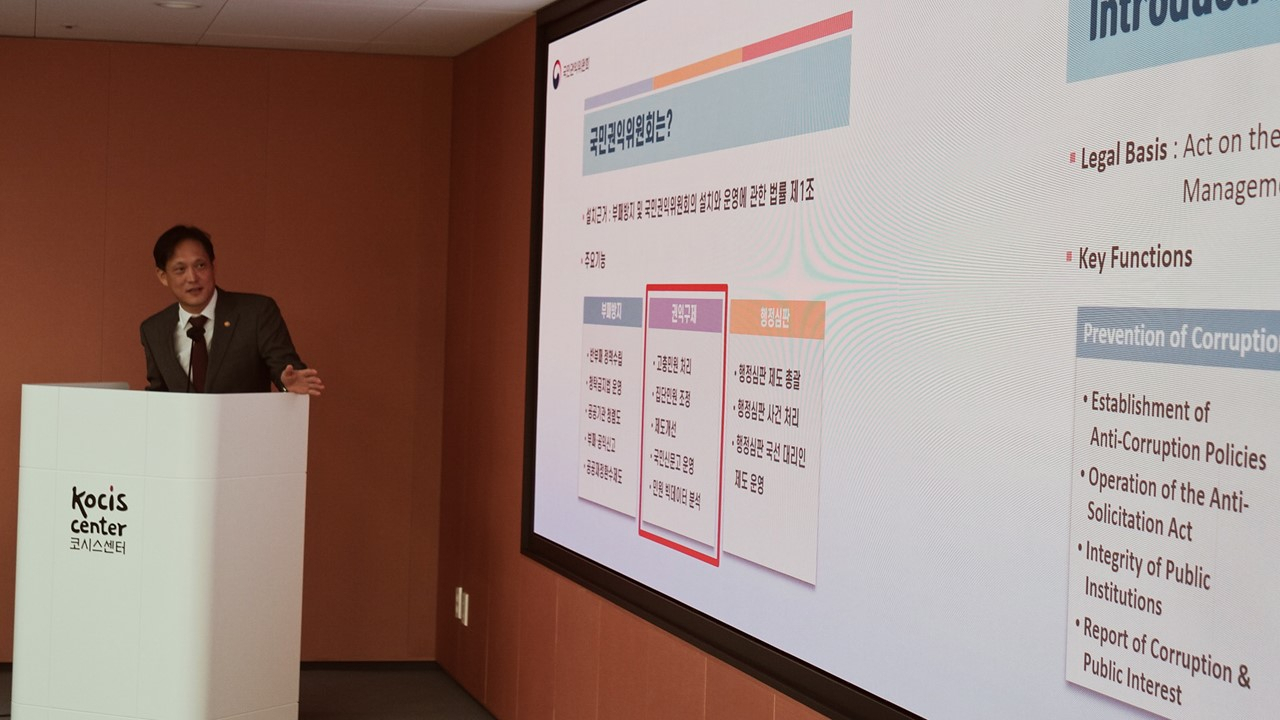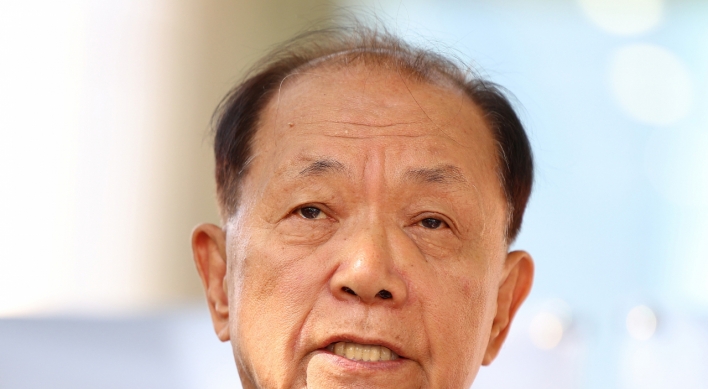ACRC touts role in handling civil complaints, shielding people from unfair treatment
By Park Jun-heePublished : Nov. 9, 2023 - 14:14

South Korea’s Anti-Corruption and Civil Rights Commission on Wednesday stressed its pivotal role in handling and resolving civil complaints and mitigating against the unfair treatment of citizens and foreign residents alike.
Over the past five years, some 30,000 complaints have been lodged to the ACRC, while 23,887 cases have been addressed, including those filed by foreign residents.
“Handling a complaint not only means dealing with the unjust situation of an individual citizen, but also resolving complaints that include the interest of multiple people,” said Kim Tae-gyu, vice chairperson of the Anti-Corruption and Civil Rights Commission, during a foreign press briefing in Seoul.
Currently, the anti-corruption watchdog operates under four primary functions: creating a transparent society by preventing and fighting corruption, handling complaints, protecting people’s rights against illegal and unreasonable administrative measures, and enhancing the institution’s administrative system.
The ACRC addresses complaints and conflicts by recommending corrective action to the concerned department and facilitates dispute resolution between parties, serving as an essential communication hub for individuals and organizations.
Kim, in particular, touted the commission’s role in resolving grievances using e-People, an online platform launched in 2005 to improve communication with the public. The public can use the platform to lodge complaints and proposals, as well as receive suggestions and the results regarding their complaints. The platform has also helped to streamline complaints from foreign residents.
Apart from catering to Koreans and overseas Koreans, the online service is also offered in 14 different languages, including English, Japanese, Chinese, Indonesian, Vietnamese and Indonesian, Kim said.
According to the ACRC, it has received a total of 100,449 complaints made by foreigners in the past three years through the platform. Most of the objections were made due to visa and immigration problems, wage arrears and unfair dismissal, it added.
In 2020, for example, the anti-corruption watchdog helped relocate the memorial for Greek soldiers in Korea at the Yeoju expressway rest area in Gyeonggi Province, following a complaint made by the Greek Veterans Association that the gas station and roadside rest area there undermine the monument’s significance.
The ACRC didn’t provide further information on how many cases have been addressed.
“Many countries (have) an ombudsman, but our agency will make sure to enhance people’s rights by heeding the voices of the public,” Kim said.







![[KH Explains] No more 'Michael' at Kakao Games](http://res.heraldm.com/phpwas/restmb_idxmake.php?idx=644&simg=/content/image/2024/04/28/20240428050183_0.jpg&u=20240428180321)











![[Herald Interview] Mistakes turn into blessings in street performance, director says](http://res.heraldm.com/phpwas/restmb_idxmake.php?idx=652&simg=/content/image/2024/04/28/20240428050150_0.jpg&u=20240428174656)
